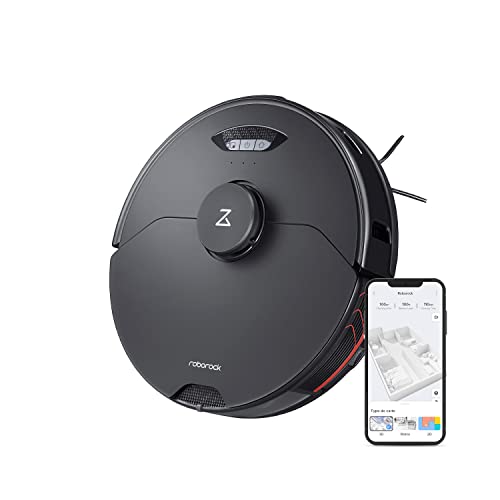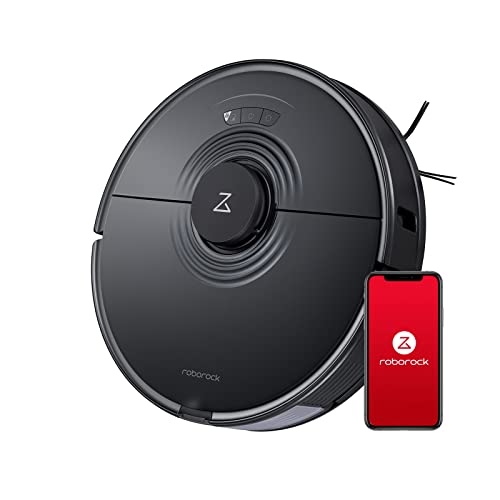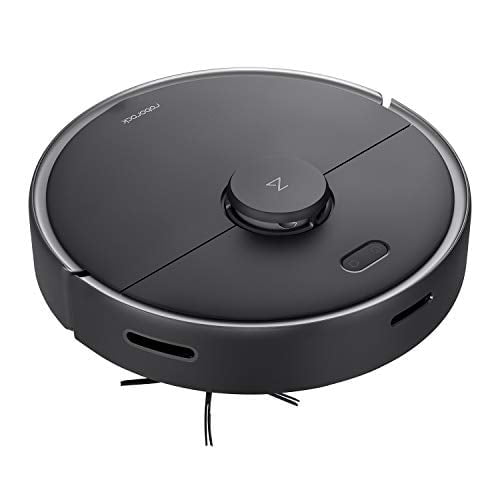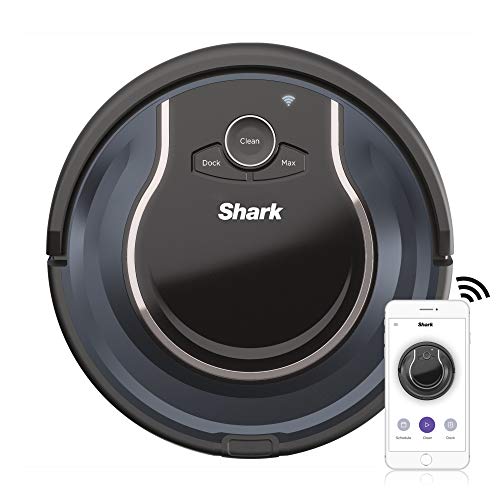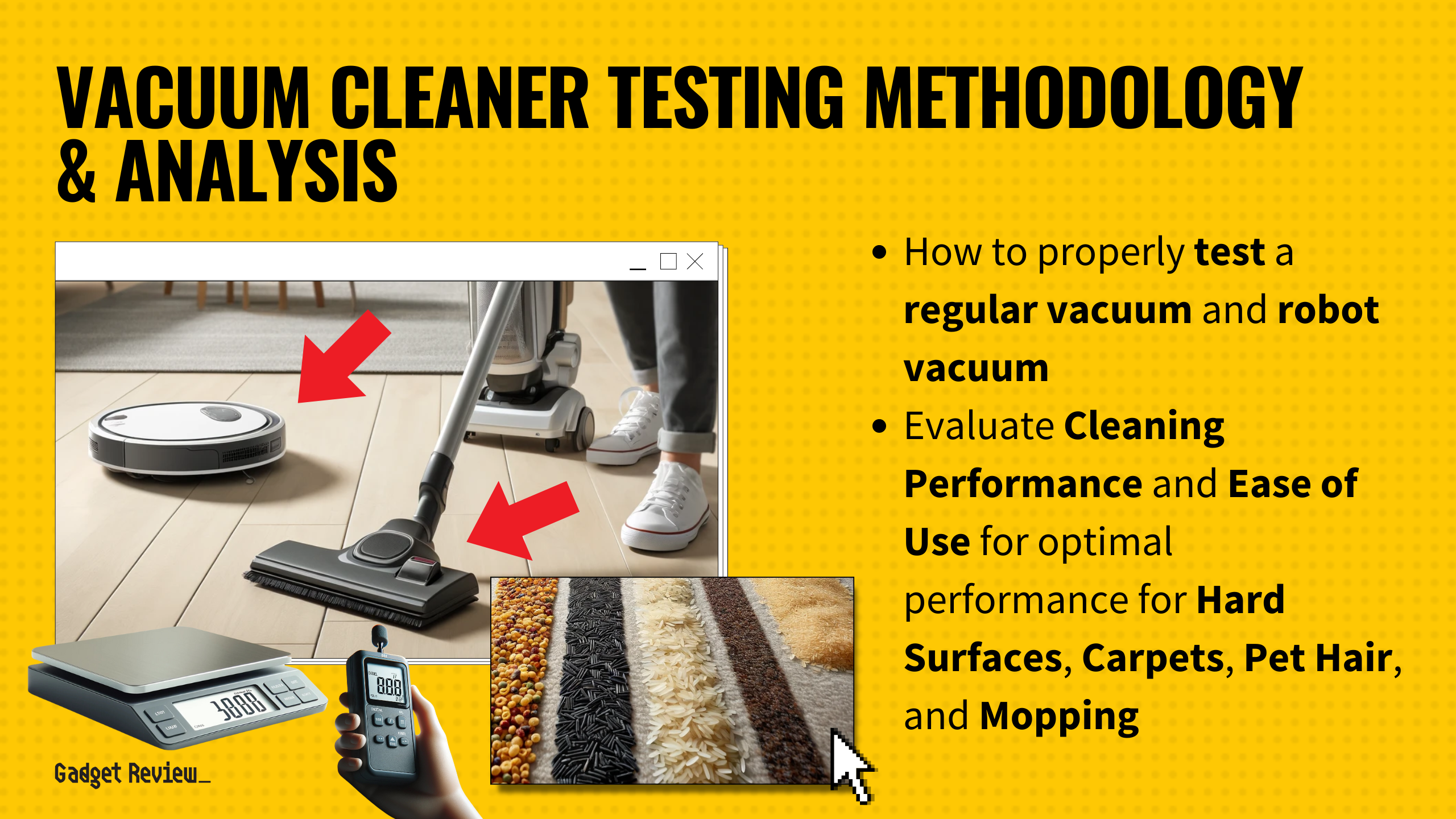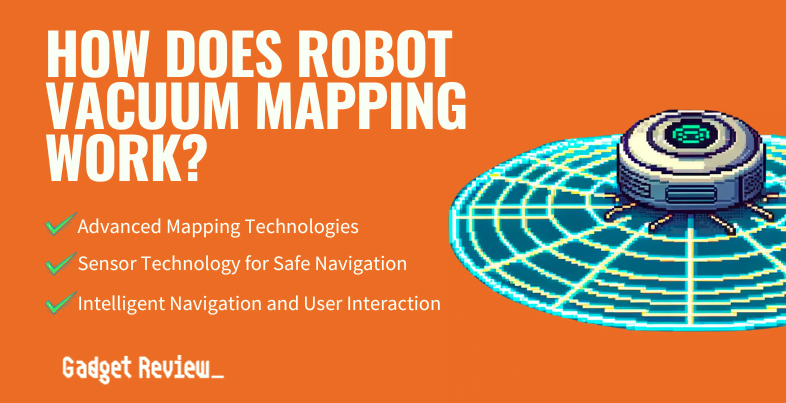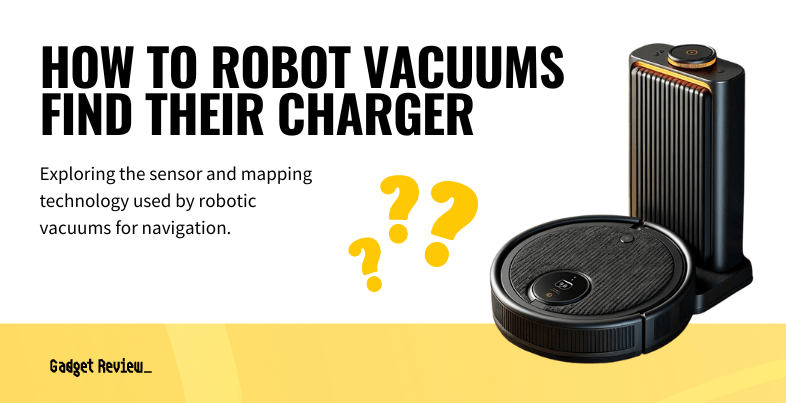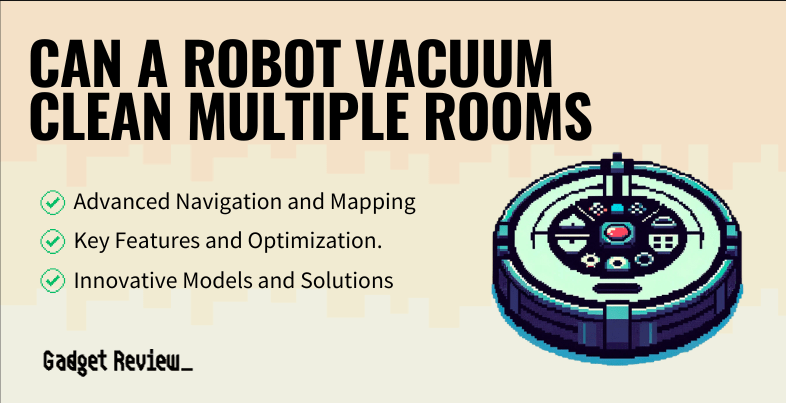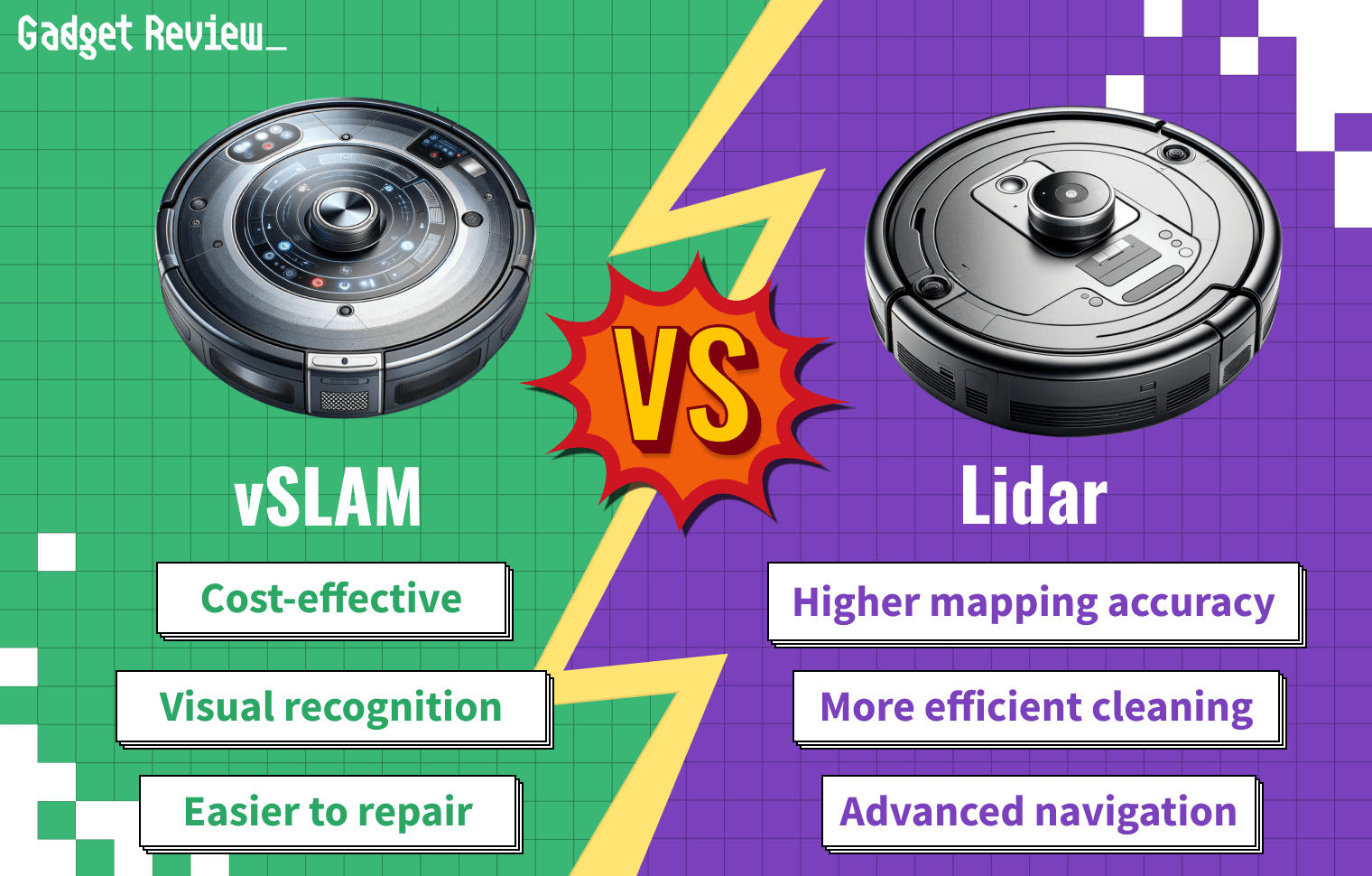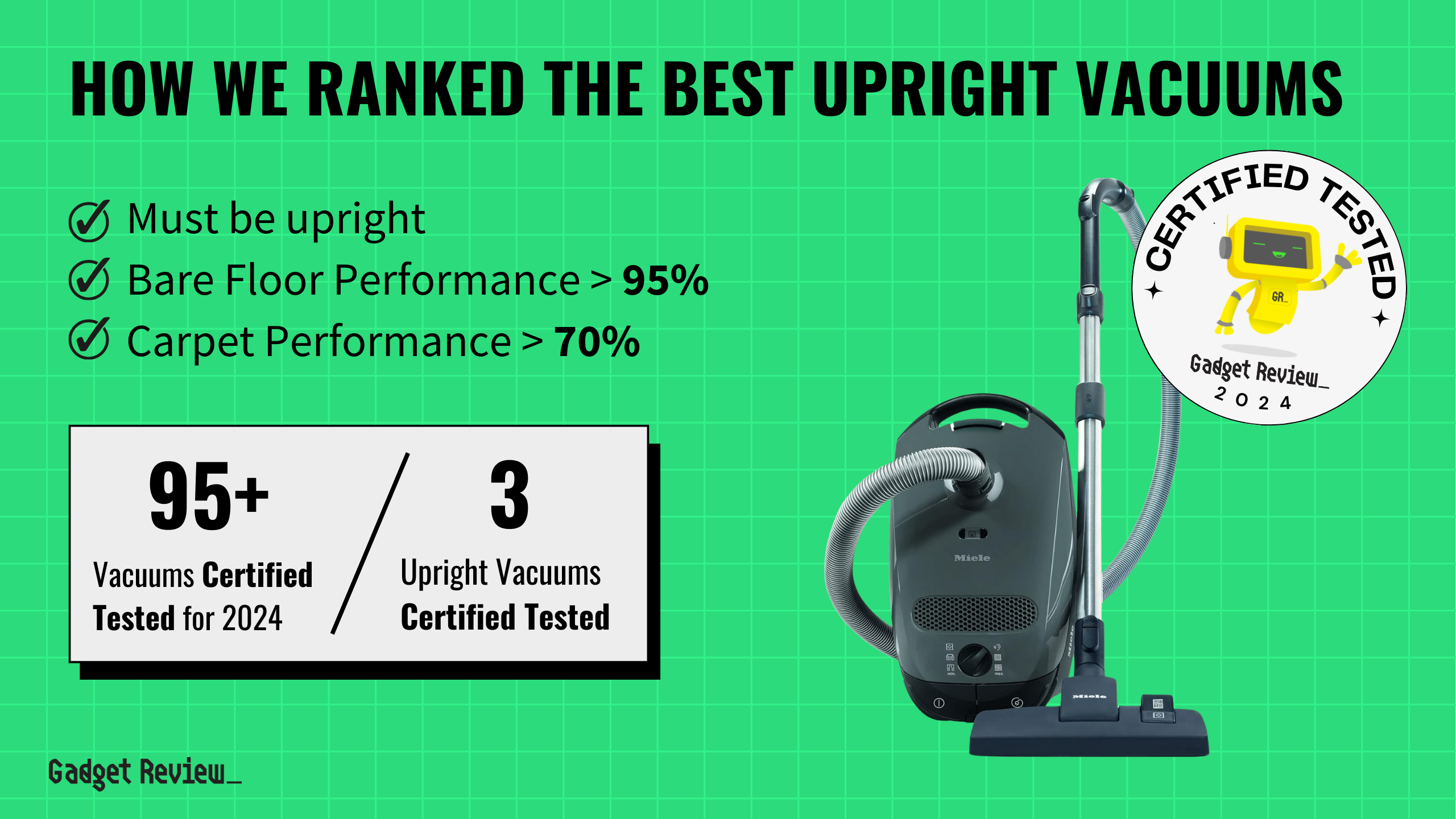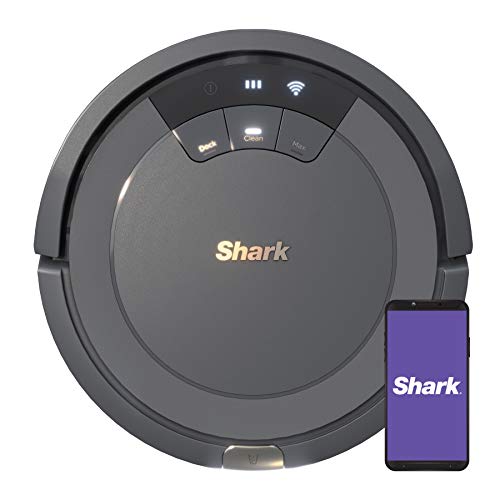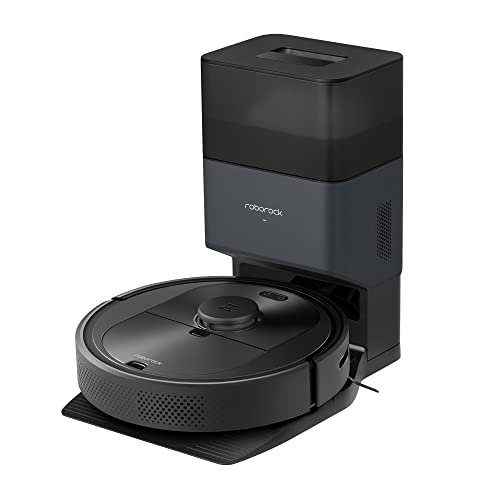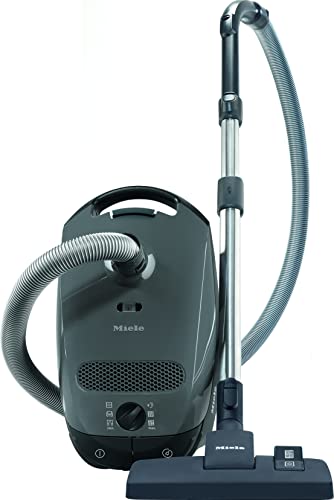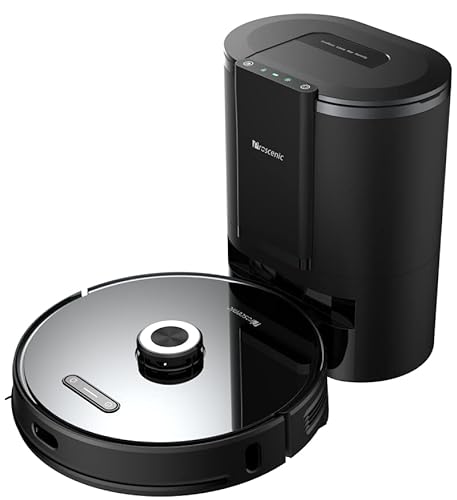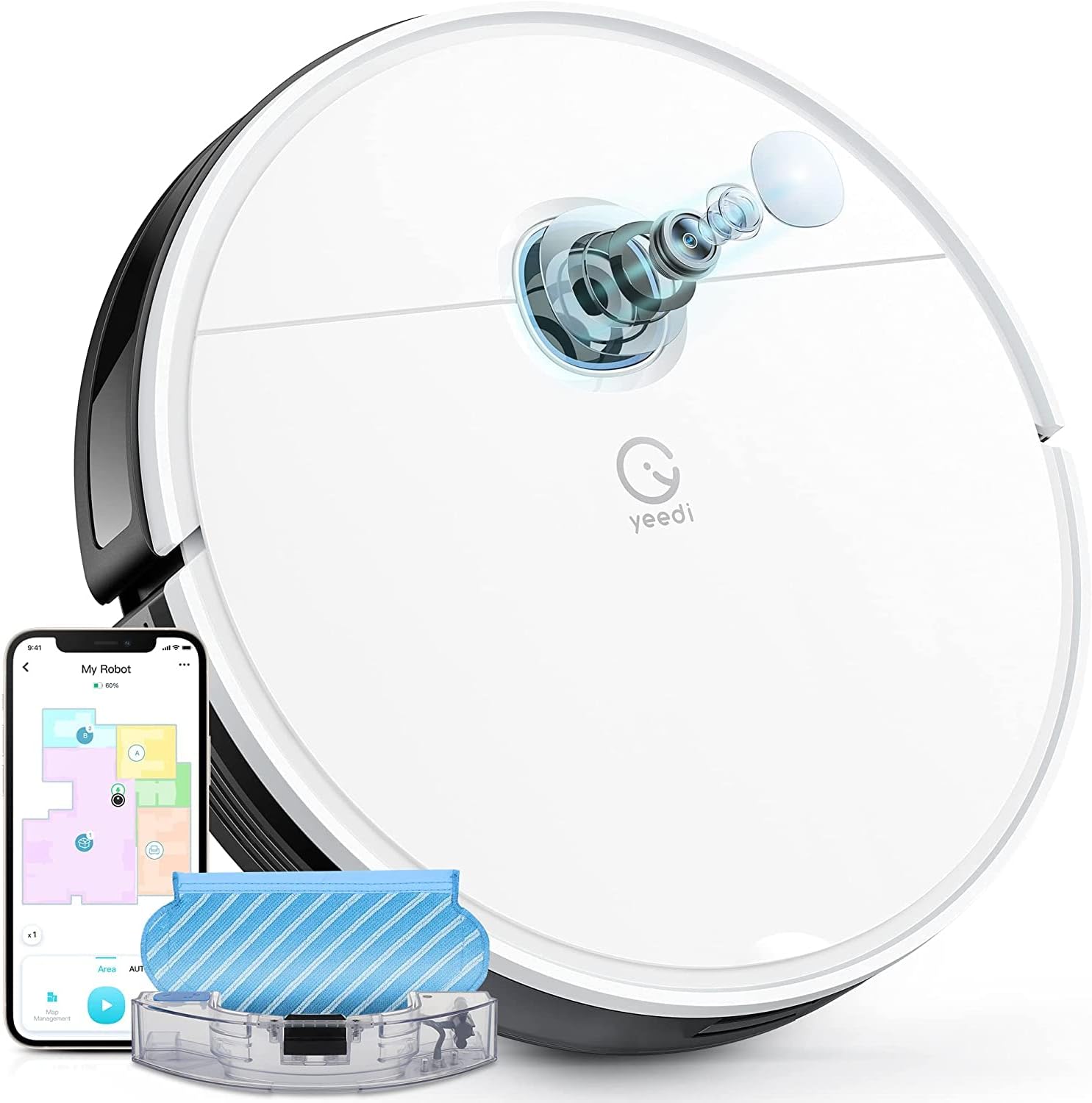When you’re choosing the best robot vacuum, considering how they handle navigation and cleaning performance is key. Advanced models with LiDAR or camera-based navigation ensure systematic cleaning, avoiding obstacles, and reducing battery drain. A focus on powerful suction and multi-surface brush rolls ensures effective cleaning across various floor types. Features like customizable cleaning schedules, smart home integration, and HEPA filtration enhance convenience and indoor air quality.
Our buying guide highlights four top-performing robot vacuums. After analyzing 99 models and over 155,419 reviews, we certified these as tested and filtered out fake reviews using our proprietary True Score. These top vacuums excelled in testing, offering robust cleaning performance, advanced navigation, and user-friendly features, ensuring they meet high standards for reliability and efficiency.
How Did We Rank These Robot Vacuums?
While the best robot vacuums are typically very flexible and capable of handling cleaning jobs across a variety of surfaces and debris types, no robot vacuum can do it all. Some can come close, though, so we’ve put together a list of robot vacuums that excel in multiple criteria to help take the guesswork out of finding a robovac that’ll do exactly what you need it to.
| CRITERIA | RANGE | REQUIRED | DEFINITION |
|---|---|---|---|
| Bare Floor Performance | > 95% | No (Nice to have) | How much debris the vacuum sucks up when cleaning bare surfaces like tile, vinyl planks, and hardwood floors. |
| Carpet Performance | > 75% | No (Nice to have) | How much debris the vacuum sucks up when cleaning carpets, including low pile and high pile. |
| Pet Hair Performance | > 95% | No (Nice to have) | How much pet hair the vacuum sucks up from any surface. |
| Noise Level | < 72 dB | Yes | How loud the vacuum is while running and in use. |
| Battery Life | > 90 min | Yes | How much time a robovac can run before it needs to be recharged. |
When you shop through our links, you’re backing our mission. Dive deeper to see how.
Latest Updates
- 08/09/2024: Republished the list to include the best robot vacuum cleaners based on our True Score system.
Top Robot Vacuums For 2025
Prices accurate at the time of publishing

Our Approach to Evaluating Robot Vacuum Cleaner
We’ve redefined robot vacuum cleaner buying guides, setting us apart from any other site on the planet. Our unique approach uses a comprehensive dataset from trusted sites, focusing on key testing metrics like noise level, bare floor cleaning performance, pet hair cleanup, and carpet cleanup performance.
We aggregate and analyze this data, ensuring our recommendations meet the specific needs. Specifically, when it comes to robot vacuums, this involves selecting models that deliver great bare floor performance and ideally can automatically dock and empty (but this isn’t required.) Discover our data-driven methodology for precise, reliable robot vacuum recommendations.
Which Criteria Matters for Testing Robot Vacuums?
By focusing on these criteria, anyone can quickly and easily compare these robot vacuums and how they’ll perform. This helps you make an informed decision and purchase a robot vac that will keep your home – and its carpets and floors – clean.
| CRITERIA | RANGE | REQUIRED | DEFINITION |
|---|---|---|---|
| Bare Floor Performance | > 95% | No (Nice to have) | How much debris the vacuum sucks up when cleaning bare surfaces like tile, vinyl planks, and hardwood floors. |
| Carpet Performance | > 75% | No (Nice to have) | How much debris the vacuum sucks up when cleaning carpets, including low pile and high pile. |
| Pet Hair Performance | > 95% | No (Nice to have) | How much pet hair the vacuum sucks up from any surface. |
| Noise Level | < 72 dB | Yes | How loud the vacuum is while running and in use. |
| Battery Life | > 90 min | Yes | How much time a robovac can run before it needs to be recharged. |
Our Trusted Data Sources
We looked at 120+ robot vacuum cleaner reviewers and found that 31 are trustworthy (60%+ Trust Rating). The three we have listed below are our most trusted for vacuum cleaners.
- Dagobiet Morales Alfaro – Rtings, MuckRack
- Derek Hales – Modern Castle, LinkedIn
- Liam McCabe – Wirecutter, MuckRack
Interested in a comprehensive analysis of our data sources? We’ve got you covered. Below, you’ll find a detailed list of every vacuum cleaner review website we’ve identified, organized by their respective Trust Ratings from highest to lowest. But we didn’t stop there. We’ve meticulously reviewed each publication and verified the data by checking whether the authors have bio links to MuckRack or LinkedIn. We’re committed to not only checking the facts but ensuring their veracity.
Vacuum Cleaner Test Data & Results
1. Bare Floor Performance Test Results
As the name suggests, bare floor performance references how well a vacuum does when it’s cleaning up tiles, vinyl planks, or hardwood flooring. Debris comes in a variety of sizes of course, and much of the testing revolves around picking up debris that ranges in size from cereal to bits of dirt to sand to a mix of everything above and more.
We recommend that a vacuum be able to pick up at least 95% of debris from a bare floor to ensure you end up with clean floors. Hitting a perfect score is obviously ideal, but the worse a vacuum performs here, the more work you need to do sweeping up or re-vacuuming. Missing debris is frustrating and can invite pests if you miss bits of food or annoyance if you step on something barefoot and hurt yourself.
Bare Floor Performance
> 95%
Acceptable range of performance
Definition: How much debris the vacuum sucks up when cleaning bare surfaces like tile, vinyl planks, and hardwood floors.
Units of Measurement: % (percentage)
Tools to Measure: Scale
Why It’s Important:
A vacuum is supposed to clean, so if it can’t pick up most of the debris on a floor, it’s not doing its job.
Bare Floor Performance in % (higher is better; 0 = No Data)
2. Carpet Performance Test Results
Carpet Performance
> 75%
Acceptable range of performance
Definition: How much debris the vacuum sucks up when cleaning carpets, including low pile and high pile.
Units of Measurement: % (percentage)
Tools to Measure: Scale
Why It’s Important:
If you have carpet, how well a vacuum cleans directly impacts how your carpet feels to walk on, and prevents pests from moving in.
Carpet cleaning ability is another important part of how your vacuum performs. Whether you have low-pile, high-pile, or rugs, how effectively a vacuum cleans up the dirt and debris left behind on the carpet is enormously important to keeping your carpet comfortable.
Generally speaking, we recommend a carpet cleaning performance of at least 75%. You might notice this is much lower than bare floors, and that’s because carpet is harder to clean. Short of devoting the time to actually shampoo and dry out a carpet, thoroughly cleaning out a carpet is very difficult, and good vacuums will reach deep between fibers and pull out long-forgotten crumbs.
Carpet Performance in % (higher is better; 0 = No Data)
3. Pet Hair Performance Test Results
If you own pets, the ability of a vacuum to suck up pet hair, be it with attachments or the brush itself is extremely important. Pet hair can stick to furniture, dig itself into the carpet, and clump together under beds and in corners. If you have allergies and need to keep pet hair out of your home as best as you can, you’ll need a vacuum that gets rid of as much pet hair as possible when cleaning.
We recommend that a vacuum has a pet hair cleaning performance of at least 95%. Higher is always better, but if you can get rid of most of the pet hair, you’ll have an easier time breathing and less dander flying away and sticking to clothes and furniture. Poor pet hair cleaning performance can invite repeated vacuuming and more annoyance for anyone who suffers from allergies.
Pet Hair Performance
> 95%
Acceptable range of performance
Definition: How much pet hair the vacuum sucks up from any surface.
Units of Measurement: % (percentage)
Tools to Measure: Speed-checking software
Why It’s Important:
If you have pets and want to keep your home free of pet hair, you need good pet hair cleanup performance.
Pet Hair Performance in % (higher is better; 0 = No Data)
4. Noise Level (dB/dBA) Test Results
Noise Level (dB/dBA)
< 72 dB
Acceptable range of performance
Definition: How loud the vacuum is while running and in use.
Units of Measurement: dB (decibels)
Tools to Measure: Sound pressure level meter
Why It’s Important:
Vacuums make noise, and if you live in a home with skittish pets, young children or thin walls, lower volume makes vacuuming less disruptive.
Every vacuum will make noise, but some make less than others. If you have to deal with thin walls, or skittish pets and very young children, lower levels of noise are going to be more attractive. There is, however, a limit to how quiet vacuums can get, and at some point, lower noise levels are going to come at the cost of suction.
Aiming for a noise level of 72 dB or less is generally ideal, as this puts the vacuum cleaner right around the noise of a washing machine, which isn’t terribly disruptive. Lower is good if it doesn’t come at the cost of performance, and higher volume isn’t terrible if the noise won’t bother you or anyone else. For reference, 60 dB is the noise level of a typical conversation, while 80 dB is around the sound level of a lawnmower.
Noise Level (dB/dBA) (lower is better; 0 = No Data)
5. Battery Life (mins) Test Results
Robot vacuum cleaners can only run for so long before their battery dies. Some models feature an auto-dock feature that sends the unit home before the battery dies, while others choose to wander under your couch and die. A longer battery life helps reduce the likelihood of a unit dying before it finishes its job, and helps reduce the overall time it takes to clean your home by taking fewer “rest stops” to charge.
Your robot vacuum should have a least a battery life of 90 minutes, but longer is always appreciated. Low battery life doesn’t overly impact performance, but it does greatly increase the amount of time it takes for your robot vacuum to clean anything, given it’ll have to keep pausing to charge.
Battery Life
> 90 min
Acceptable range of performance
Definition: How long the vacuum can run before the battery dies.
Units of Measurement: min (minutes)
Tools to Measure: Timer
Why It’s Important:
Longer battery life means fewer interruptions when your vacuum is cleaning because it’ll have to stop and charge less.
Battery Life (min) (higher is better; 0 = No Data)
Robot Vacuum: Mistakes To Avoid
- Ignoring Floor Type Compatibility: Much like a regular vacuum, it’s important not to overlook the compatibility of the vacuum with your specific floor type. To learn about the differences between these vacuums, check out our page comparing robot vacuums and regular vacuums. Regardless of type, not all models perform equally well on every surface, so choose one designed for your flooring, whether it’s hardwood, carpet, or tile. For example, the difference between models like the Roomba 960 and 980 can impact performance on various floor types, so make sure to pick the right one for your needs to ensure the robot vacuum is worth it.
- Overlooking Battery Life: Another critical aspect is battery life; you don’t want to end up with a vacuum that can’t cover your entire home on a single charge. Make sure the model you select has sufficient battery life or can resume cleaning after recharging if necessary. Additionally, understanding how robot vacuum mapping works can help you choose a model that best suits your home layout to ensure your home can be cleaned efficiently.
- Disregarding Smart Features and Underestemating Noise Level: Don’t disregard the importance of smart features like mapping, scheduling, and app integration. While basic models can use gyro navigation, advanced models offer convenient controls and can navigate your home more efficiently. Additionally, noise level is another factor that can often be underestimated. Some vacuums can be quite loud, which can be disruptive if you’re home while it’s running. Checking the decibel level beforehand can help you avoid this issue.
- Neglecting Maintenance Requirements: Lastly, consider the maintenance requirements of the vacuum. Models with self-cleaning brushes and easily replaceable filters can save you a lot of time and hassle in the long run. If you ever encounter issues, knowing how to troubleshoot your device is essential, and you can find helpful guidance in this robot vacuum troubleshooting guide. Additionally, ensuring that your vacuum can navigate freely is essential for smooth operation, and you can learn practical tips on how to keep your robot vacuum from getting stuck under furniture. If repairs or adjustments are necessary, understanding how to fix common robot vacuum issues or how to install and replace bumpers can further simplify maintenance and prolong the life of your vacuum.
The Best Robot Vacuum Tests Compared
Product |
True Score
|
Bare Floor Performance
|
Carpet Performance
|
Pet Hair Performance
|
Noise Level
|
Battery Life
|
Column 8 |
|---|---|---|---|---|---|---|---|
| 87 |
|
|
|
|
| |
| 85 |
|
|
|
|
| |
79 |
|
|
|
|
| ||
| 76 |
|
|
|
|
| $199.59 |









